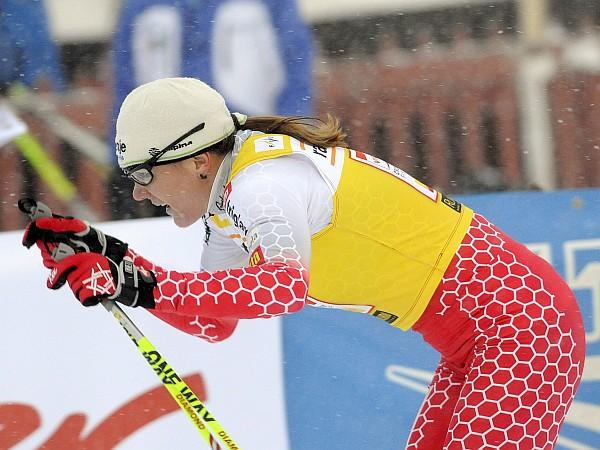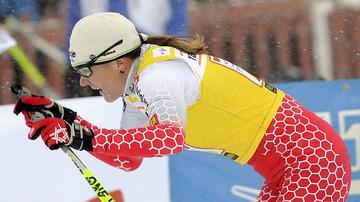
Ten years have passed since one of the most memorable moments in the history of Slovenian sport. Petra Majdič fell into that hole, climbed out, hurt and in severe pain, then ran her way to bronze at the Winter Olympics in Vancouver.
I prepared a short article for the anniversary, remembering a few amazing details from the whole story. One of our readers, Uroš, commented on it: “The glorification of her success is at least controversial, if not dangerous, as it absolutely sets the wrong example: because she insisted on competing injured, she severely endangered her health”.
I understand Uroš' prickle and, truth be told, I agree with his criticism of glorification. I remember that when it happened. I felt the discussion was missing from public debate, something I wrote about in my blog, the precursor of this column.

A quick web search shows that students have written theses on this subject (‘media coverage of an event as martyrdom’). The broader public perception of Petra is the least ironic. A year before Vancouver, when she had her most successful season racking up nine wins, she didn't get on the podium at the World Championships in Liberec, because of medical issues. Some sections of the public were very critical – and that took a heavy toll on her. “When push comes to shove, she competes like a tourist,” is the shortest possible summary of her (mostly anonymous) critics.
A year later, she fell down a hole because of her own carelessness, her own mistake and seriously injured herself. Her persistence didn't just win her a medal, she also became a symbol of perseverance and fighting at all costs. So many of those who criticised her in Liberec morphed into the loudest worshipers of her amazing story. How ironic.
It’s about the story. The message.
The message of perseverance is clear, but I am also very aware of the omittance of questions regarding the cost of her actions. I completely agree with Uroš when it comes to the question of her health. I only met Petra a fair few years after her Olympic medal for a special episode of the Številke podcast. She had to decide in the heat of the moment. To continue or retire? She was competing at her last Olympics, missing out on a medal in Salt Lake City and Torino for different reasons. Both times she was close, yet so far away. There is a universe of difference between 0 and 1. Now I understand that in that moment of time, there was no room for philosophical debates, thinking about what kind of message her actions send. She spent the majority of her life devoted to sport and logically, she wanted to do everything for 0 to become 1. And in the end, 0 became 1.
I don't want to justify her decision at all. I just want to understand it.
If we rid sport of all surplus, of all the rich and shiny adjectives (which I intentionally overused at the beginning of this article), what we're left with are numbers that weave stories together. If we stay completely fair and use the same measures for everything, we come to the realisation that nearly all sports reporting automatically entails glorification. Australia's speedskater Steven Bradbury produced one of the most unbelievable Olympic stories ever when he won gold as an outsider in Salt Lake City in 2002. His Golden Tale was entwined with an incredible run of good fortune that saw his fellow competitors fall at all stages of the competition (I recommend watching the bottom clip).
If you gave the short portrait a look, you must have noticed the footage of his substantial scar. He seriously injured his neck in 2000 and broke two vertebrae. In the narrative of his career, it is merely shown as candy that gives us more flavour. Which, of course, can also be seen as a shameless point of view. Speedskating is a dangerous sport where cuts and bruises are commonplace among athletes.

This leads me back to Uroš' basic premise. As ironic as it sounds and even though I have written it countless times, I will again – just participating in elite sport is not healthy. It can be gladiatorial (i.e. American football and head trauma; the constant aspiration for dangerous race tracks). If we add a hypothetical pinch of external motivation (the pressures of parents living their unfulfilled dreams or perhaps even wanting to cash in on their lottery ticket), it is not completely inappropriate to align yourself with the notion that all reporting on elite sport represents glorification.
This is an extreme view. If we interpret all sports reporting as glorification then it is even more important to report and expose other sports topics such as the importance of personality, fair play or the decision that health is more important than athletic achievement.




























































Komentarji so trenutno privzeto izklopljeni. V nastavitvah si jih lahko omogočite. Za prikaz možnosti nastavitev kliknite na ikono vašega profila v zgornjem desnem kotu zaslona.
Prikaži komentarje